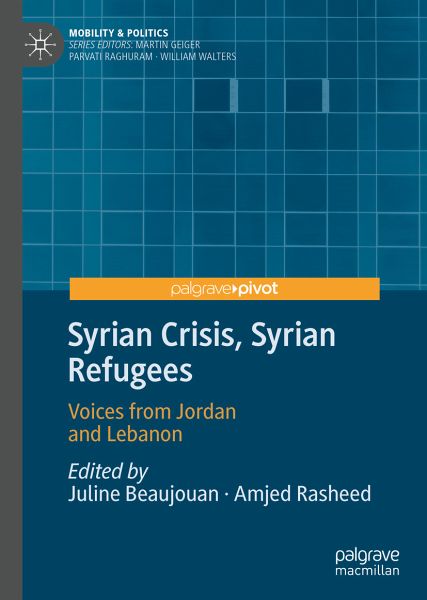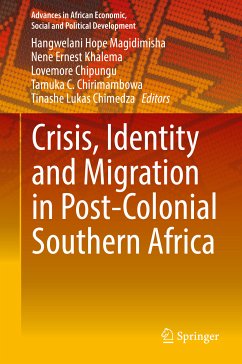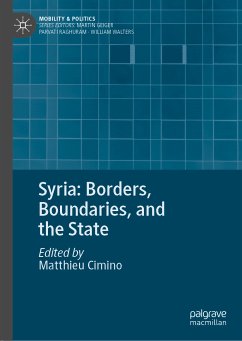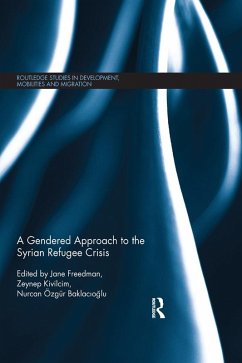
Syrian Crisis, Syrian Refugees (eBook, PDF)
Voices from Jordan and Lebanon
Redaktion: Beaujouan, Juline; Rasheed, Amjed
Versandkostenfrei!
Sofort per Download lieferbar
48,95 €
inkl. MwSt.
Weitere Ausgaben:

PAYBACK Punkte
24 °P sammeln!
This edited volume investigates the political and socioeconomic impact of the Syrian refugee crisis on Lebanon and Jordan, and these countries' mechanisms to cope with the rapid influx of refugees. The sudden population increase has resulted in severe pressures on infrastructures and services, as well as growing social tensions between the refugees and host communities. These chapters use a transdisciplinary approach to analyse the repercussions of the humanitarian tragedy at three different levels: 1) the changing governmental policies of the two countries towards the crisis; 2) the different...
This edited volume investigates the political and socioeconomic impact of the Syrian refugee crisis on Lebanon and Jordan, and these countries' mechanisms to cope with the rapid influx of refugees. The sudden population increase has resulted in severe pressures on infrastructures and services, as well as growing social tensions between the refugees and host communities. These chapters use a transdisciplinary approach to analyse the repercussions of the humanitarian tragedy at three different levels: 1) the changing governmental policies of the two countries towards the crisis; 2) the different perceptions of the Jordanian and Lebanese local communities on the Syrian refugees; and 3) the role played by NGOs and the civil society in both countries in dealing with protracted humanitarian emergencies.
Dieser Download kann aus rechtlichen Gründen nur mit Rechnungsadresse in A, B, BG, CY, CZ, D, DK, EW, E, FIN, F, GR, HR, H, IRL, I, LT, L, LR, M, NL, PL, P, R, S, SLO, SK ausgeliefert werden.












